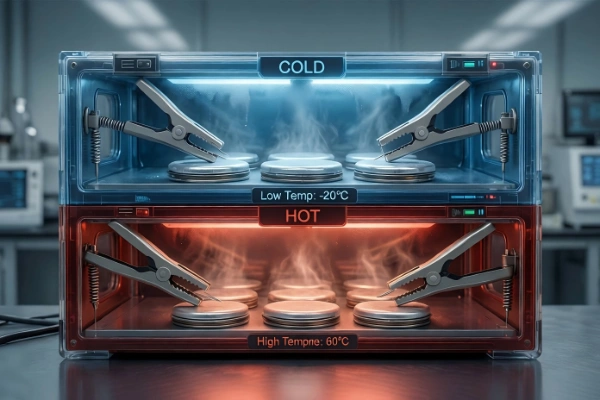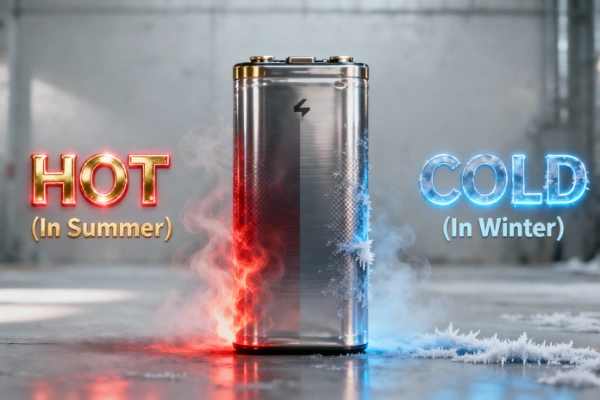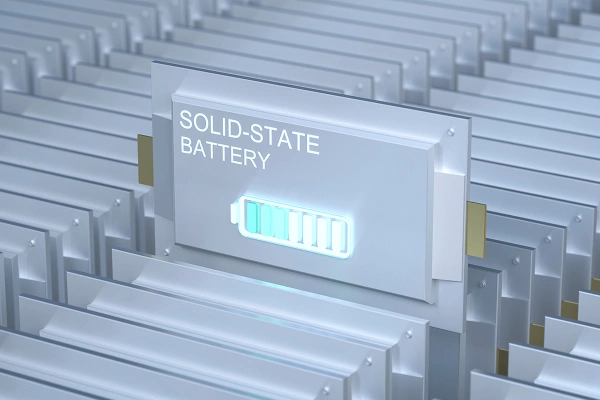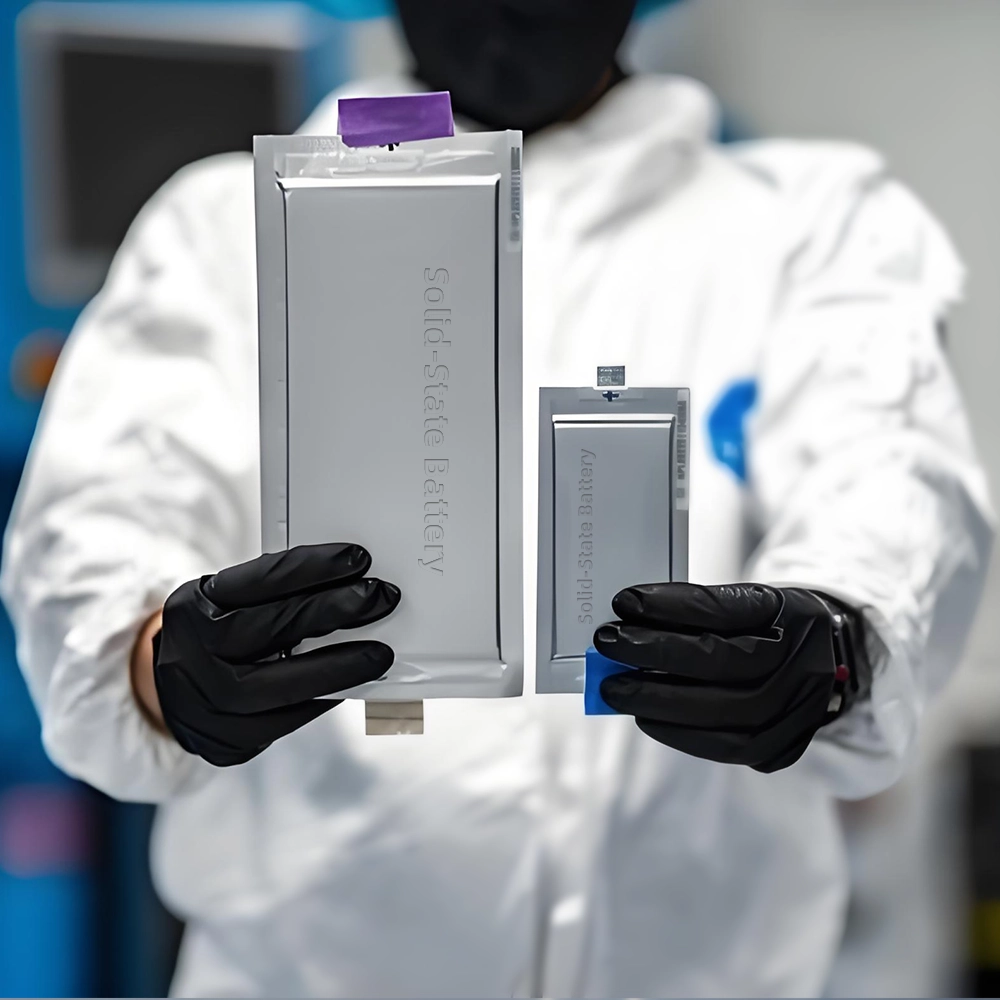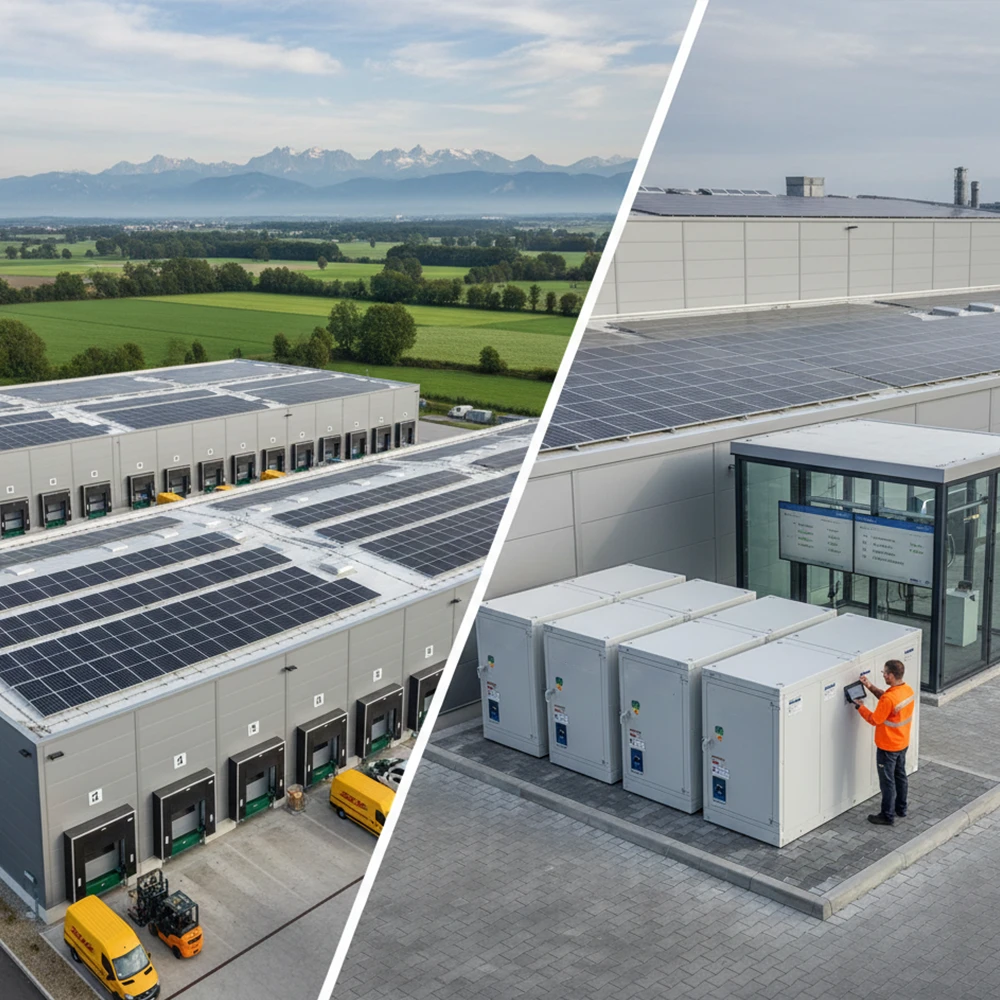What is a Battery Management System (BMS) ?
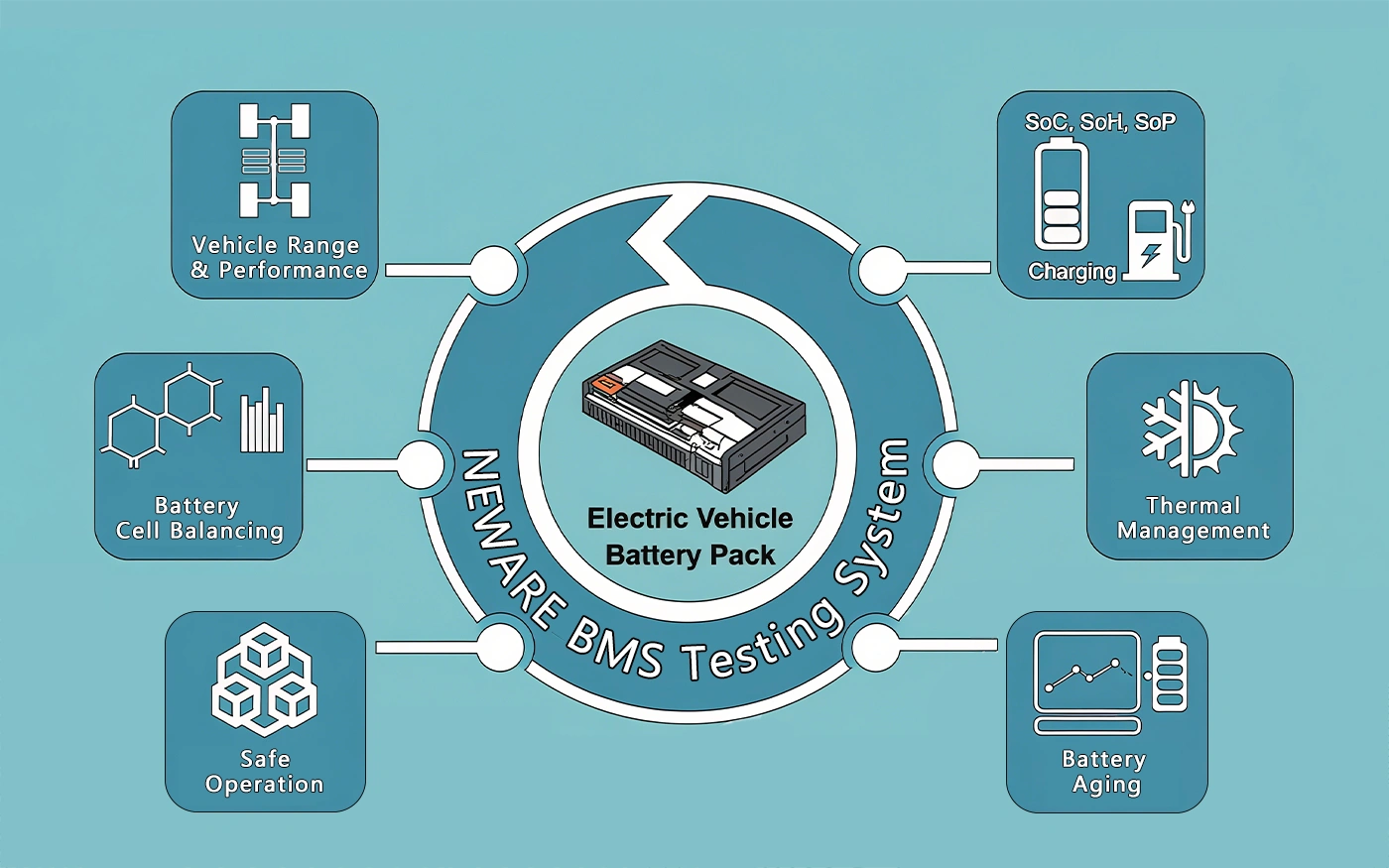
In the realm of modern energy storage and electric vehicles, Battery Management Systems (BMS) play a pivotal role. BMS is responsible for monitoring, controlling, and protecting battery cells to ensure optimal performance, safety, and longevity. As the demand for efficient and reliable energy storage solutions grows, the importance of thorough BMS testing cannot be overstated.
Electric vehicles (EVs), for instance, rely heavily on BMS to maximize power output, extend driving range, and enhance overall efficiency. Each battery cell in an EV, whether connected wired or wirelessly, is linked to a Battery Management Controller (BMC). Automotive manufacturers strive to increase the number and density of cells while maintaining galvanic isolation, making proper BMS management crucial.
To guarantee the performance and safety of batteries, several key aspects need to be tested. Firstly, emulating the actual battery cells used in EVs is essential. This involves verifying the communication between the BMC and the Cell Management Controller (CMC). Secondly, optimizing the monitoring, controlling, and management functions of the BMS is vital. Overcharging and deep discharging can significantly reduce battery lifespan, so accurate control by the BMC must be ensured. Additionally, battery defects can lead to overheating and even fires, necessitating stress testing by emulating real - world conditions, including error scenarios such as overload, under - voltages, and complex cell profiles. CMC suppliers also need to characterize their controllers and conduct production tests with flexible cell emulation. Finally, validating the complete BMS system, including software simulation and Hardware - in - the - Loop (HIL) testing, is a critical step. This includes cell balancing testing, where the pre - defined State of Charge (SOC) for each single cell is emulated, and verifying the communication between the CMC and BMC according to appropriate standards like CAN, LIN, or SPI.
NEWARE BMS Testing System: CE-6'S-BMS-24S300A
NEWARE, a leading name in battery testing equipment, has recently introduced the CE - 6'S - BMS - 24S300A, a powerful Battery Test Equipment and BMS Testing System. This innovative product is designed to meet the diverse and demanding requirements of modern battery testing.
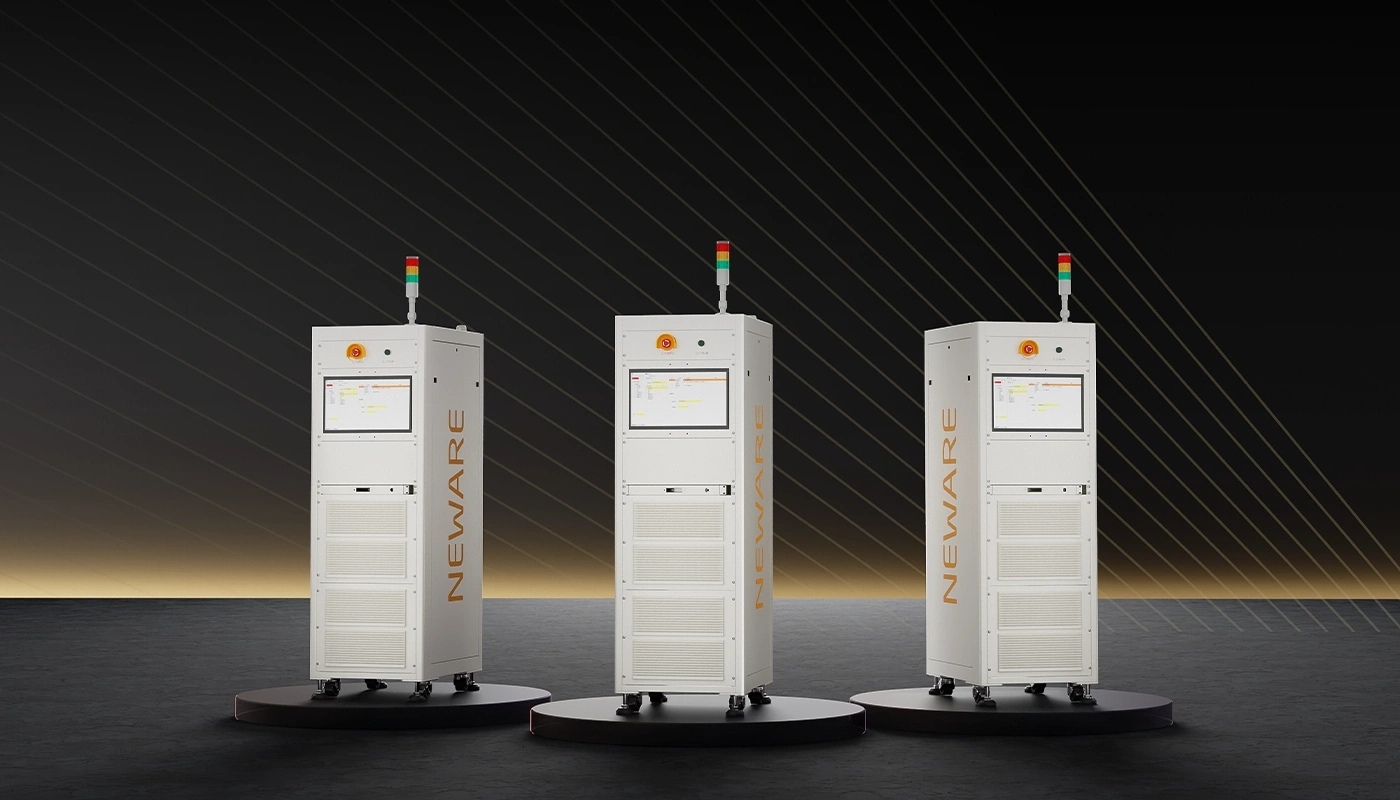
Eliminate real battery testing risks with safe, efficient extreme condition simulation.
24-channel battery simulation replaces real battery packs (0-6V/±0.5mV accuracy), avoiding explosion risks from overcharge, over-discharge, and short-circuit tests. Precisely simulate SOC estimation, cell voltage/temperature variations, and evaluate BMS voltage monitoring accuracy.
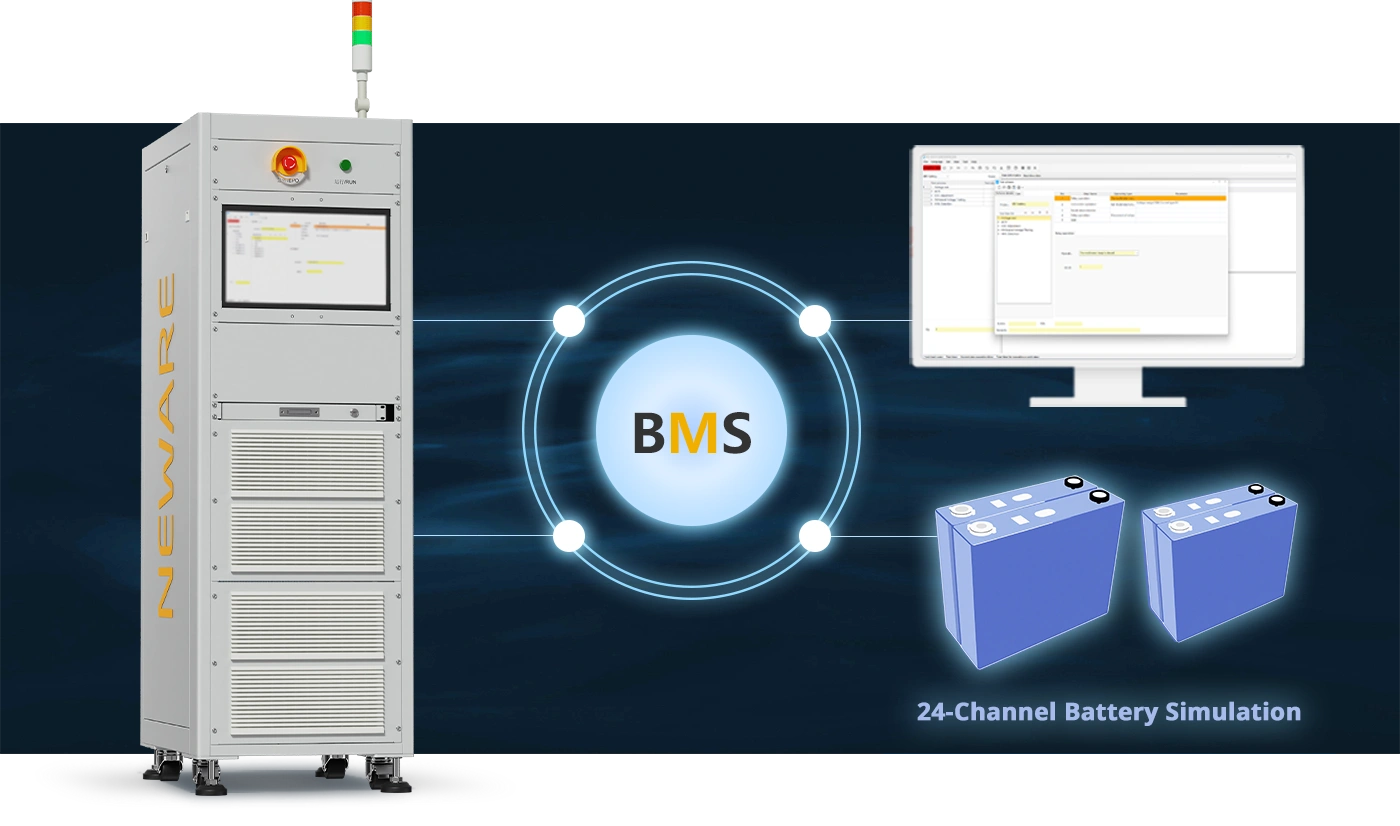
Comprehensive BMS performance verification with 17 core test scenarios covered.
Balance strategy validation: Utilizing simulated battery packs to accurately mimic SOC differences among individual cells. This tests the BMS's balance control strategy, ensuring it can effectively minimize discrepancies between cells and prolong the battery pack's lifespan. Full-range control strategy testing : Including charge/discharge strategies, thermal management, and fault diagnosis (overvoltage/undervoltage/overtemperature, etc.), the system conducts comprehensive validation of:
Relay control strategy
SOC estimation
Output power control
Energy feedback
Power-on/power-off sequences
Charge management
Thermal management strategies
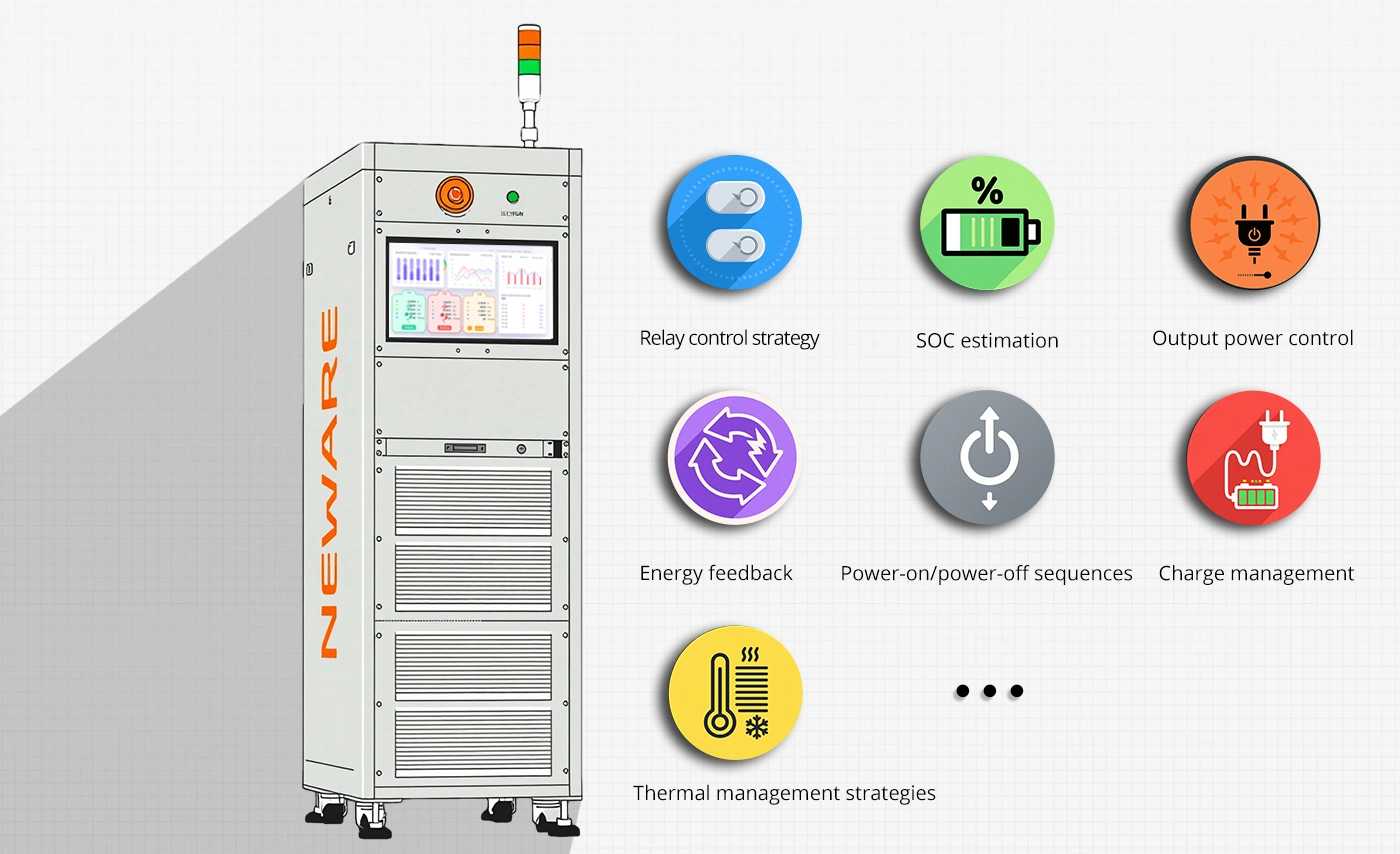
Modular hardware design for flexible application.
High-precision measurement capabilities for voltage (0-1500V), current (300A ±0.05%).
8-channel temperature simulation (NTC) with 2Ω-1MΩ adjustable resistance.
Integrated insulation resistance testing (50Ω-100MΩ range) and high voltage withstand capability up to 2000V.
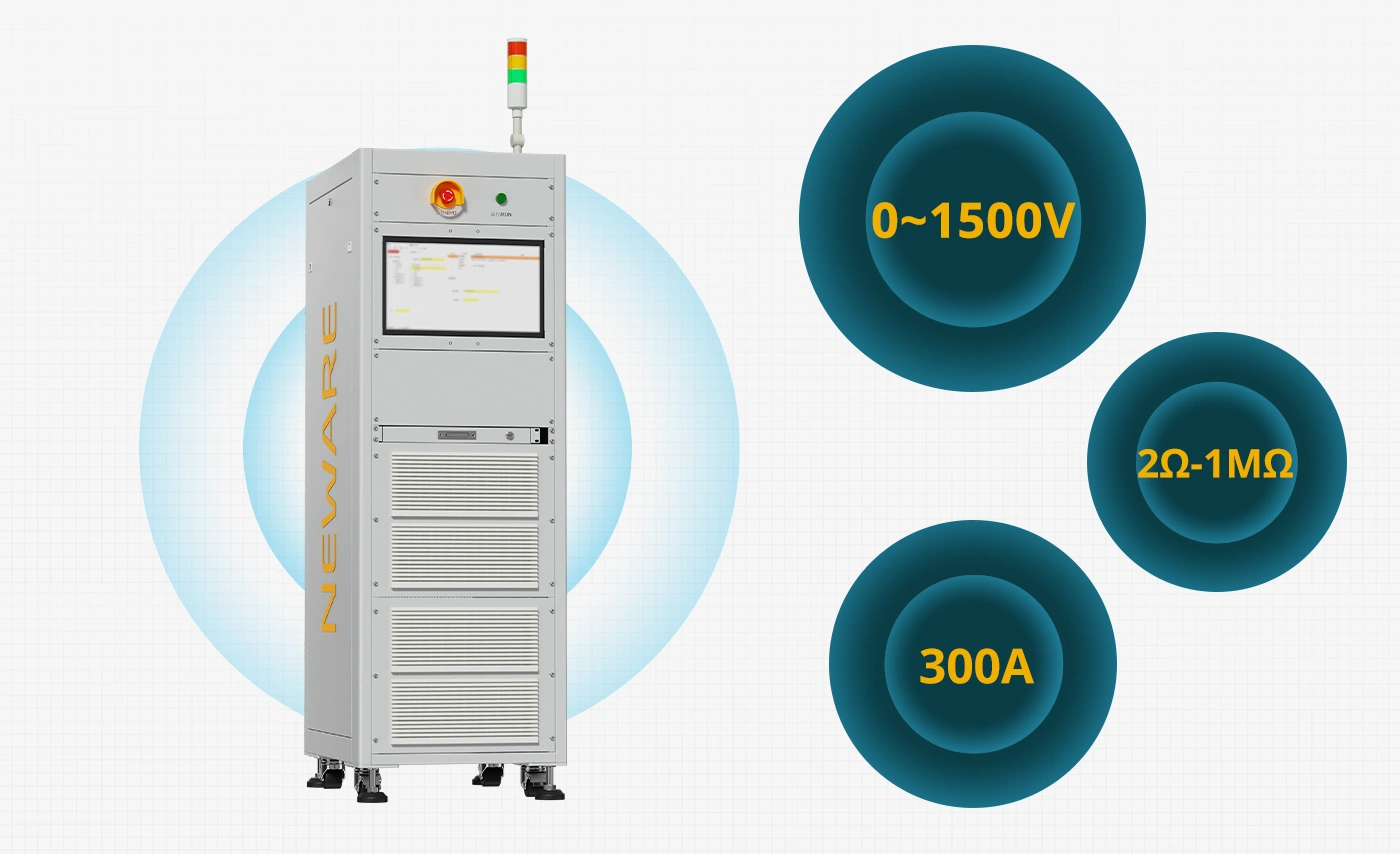
Multi-protocol communication and customized adaptation.
Multi-protocol communication testing: supports multiple protocols including CAN, RS485, IIC, SMBus, and Ethernet etc. The BMS test system is programmed according to the CAN communication protocols between BMS and ECU, motor controller, and charger. The PC software simulates devices that communicate with BMS.
Customized compatibility: custom development of IO and devices based on customer requirements. Test steps can be freely programmed, and customized development is available for customer-specific BMS.
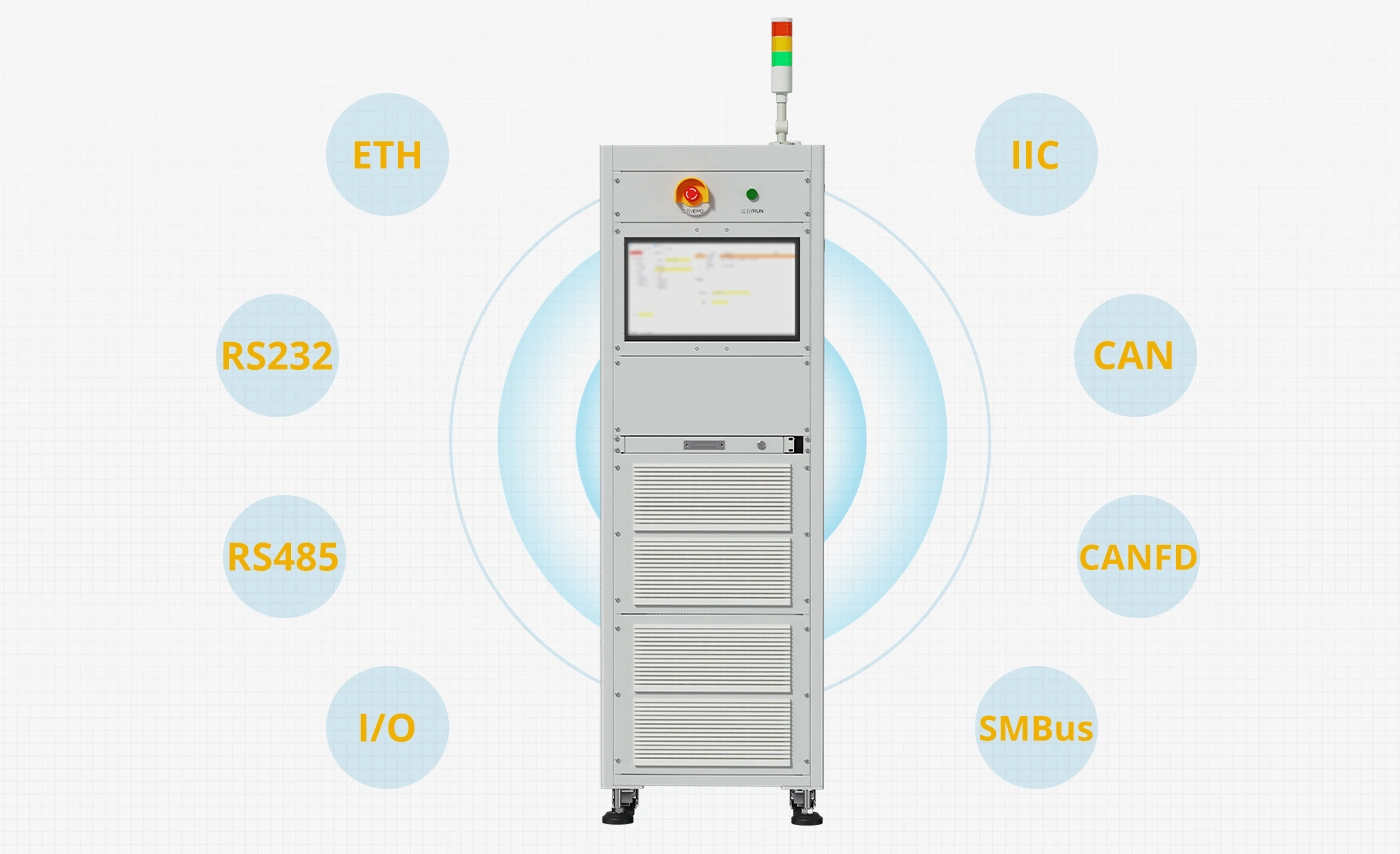
Smart data management and reporting.
Automated analysis: compare BMS readings (temp/current/voltage/resistance) against standards, calculating max/min/avg errors.
Traceability: export to Excel, barcode (1D/2D) tracking.
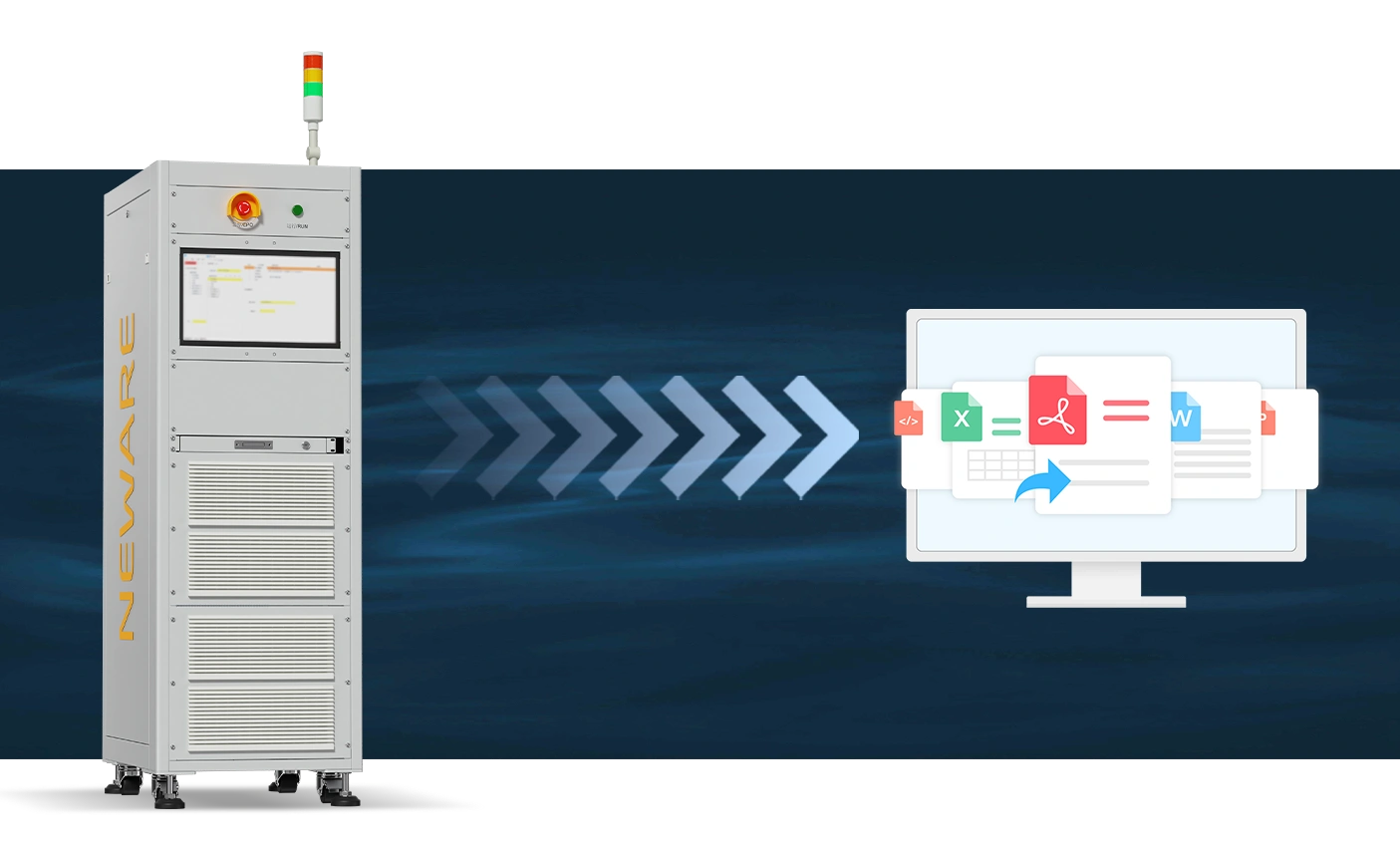
Applications of the NEWARE BMS Testing System
Electric Vehicle Battery Testing: as the electric vehicle market continues to expand, there is a growing need for reliable and efficient battery testing. The CE - 6'S - BMS - 24S300A can be used to test EV batteries at various stages, from cell and module testing during the R & D phase to pack testing in production. It helps ensure that EV batteries meet the required performance, safety, and durability standards.
Energy Storage System Testing: with the increasing deployment of energy storage systems in grid - scale applications, residential solar storage, and other areas, accurate battery testing is crucial. The system can be used to test the batteries in these energy storage systems, verifying their performance under different charge - discharge cycles and environmental conditions.
Battery Research and Development: in academic and industrial research labs, the CE - 6'S - BMS - 24S300A provides researchers with a powerful tool for studying new battery chemistries, cell designs, and BMS algorithms. Its high - precision measurement, flexible configuration, and programmable features enable in - depth research and experimentation.




